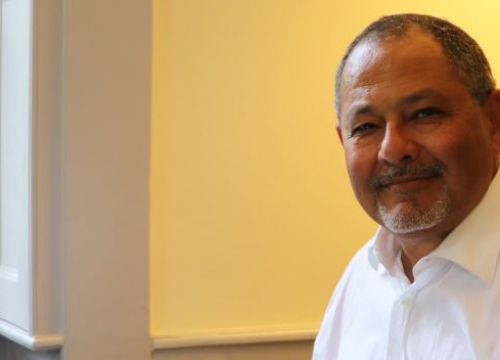Our New Visiting Fellow: Ibrahim Salama


Geneva Academy
27 August 2019
Ibrahim Salama is the Chief of the Human Rights Treaties Branch of the Office of the United Nations (UN) High Commissioner for Human Rights. As such he manages the functioning of the UN treaty body system which monitors states’ compliance with their human rights obligations through periodical reporting, visits, inquiries and individual petitions.
He just joined the Geneva Academy as Visiting Fellow and will stay with us until end of 2019.
What Motivated you to Carry out a Fellowship at the Geneva Academy?
I had close collaboration with the Geneva Academy through their work on the future of the UN treaty body system. This allowed me to further deepen my conviction that independent academic thinking can contribute immensely to providing solutions to complex multilateral challenges. Particularly in an era where the push back against human rights seems to become a worrying global phenomenon.
What will be the Focus of your Research during this Fellowship?
I will carry out research on the human rights role and responsibilities of religious actors, attempting to provide a draft human rights toolbox for human rights training for faith actors.
Why is this Issue Important?
I believe that the human rights movement confronts a dilemma between secularism and the rising role of religions. Religious actors play both constructive and destructive roles in different parts of the world. Recognising and empowering faith actors in the area of human rights can bring great benefits in terms of peace, development, security and human rights.
What Will be the Impact of this Research?
I hope that this research will contribute to the emergence of a new powerful human rights actor.
What Do You Expect from your Time at the Geneva Academy?
I expect debates, fresh perspectives, methodological guidance and even potential collaboration if the results of my research are of interest to the Geneva Academy.









